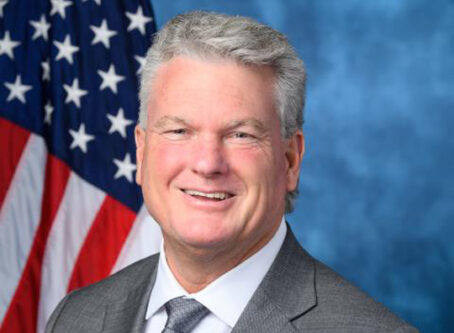Colorado Senate committee advances revised truck lane rules
A Colorado Senate panel has voted to advance a bill that includes a revision to truck left lane restriction rules.
Trucks already are prohibited from traveling in the left lane along Interstate 70 through Glenwood Canyon.
The Senate Transportation and Energy Committee voted to advance an amended bill that would bar large commercial trucks from the left lane along multiple stretches of I-70. Specifically, in addition to Glenwood Canyon, trucks weighing at least 16,000 pounds would be barred from left lane travel on Georgetown Hill, the Eisenhower Tunnel and Vail Pass.
As introduced, SB100 applied the left lane restriction along I-70 between milepost 116 in Glenwood Springs and milepost 259 in Morrison.
The bill would allow tickets up to $100 to be issued to violators.
Tire chains
The Colorado Department of Transportation has said commercial vehicles traveling through Glenwood Canyon account for 57% of winter closures on I-70. The agency attributes many incidents to unchained trucks.
Another provision in the bill would require truck drivers to carry chains when traveling on I-70 or any U.S. highway west of Morrison.
The introduced version expanded the chain rule to include I-25 and state roads.
State law already mandates that trucks carry chains while driving I-70 through the mountains.
Advocates argue revised truck rules that include truck speed limit enforcement zones are needed to improve safety.
A related provision would set up truck speed limit enforcement zones in Glenwood Canyon. Affected stretches of I-70 eastbound would be between milepost 116 and milepost 131. Westbound truck traffic between milepost 118.5 and milepost 131 also would be included.
Speeding fines for trucks in the zones would be double.
“It’s important to remember Colorado-based motor carriers … have some of the best drivers who do, and will continue (to), follow the rules,” Sen. Dylan Roberts, D-Frisco, told the committee. “We know that out-of-state drivers who are inexperienced on our mountain highways in commercial vehicles are causing a lot of these crashes. We want to make sure they have the equipment and the training and oversight to stay safe.”
Additionally, a study would be commissioned by CDOT to determine where to build more chain stations in the affected areas. An awareness campaign also would be required to inform travelers of the new rules and restrictions.
A fiscal note prepared by Legislative Council Staff, the nonpartisan research arm of the Colorado General Assembly, shows that a study on the feasibility of additional chain-up stations would cost up to $50,000.
Trucking representatives believe the paired-back rules still are excessive and costly.
Doug Morris, OOIDA director of state government affairs, said the legislation lacks merit.
“There are no studies showing increased accidents in this area or where trucks are the main cause of these accidents,” Morris noted.
He added that it is more likely the majority of the accidents are caused by passenger vehicles.
“When I read this bill, one thing comes to my mind, and that’s arbitrary and capricious,” Morris said.
Greg Fulton of the Colorado Motor Carriers Association said his group welcomes the chain location study. He added that his group would like to see more analysis on the chain requirement.
He highlighted to the committee that truck parking is another issue that warrants attention.
“We have no truck parking. We’ve been requesting truck parking. Our people need a place to rest. We actually have less truck parking than we did 10 years ago,” Fulton said. “We have more trucks. Some of the trucks have to continue onward because they can’t find anywhere to park. This item should be included in the study.”
SB100 has moved to the Senate Appropriations Committee. LL









